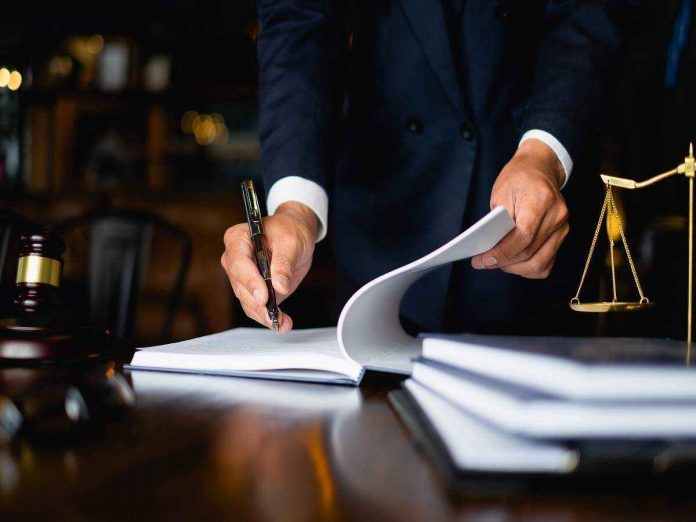This article is written by Shivalika Misra who is pursuing a Diploma in Advanced Contract Drafting, Negotiation and Dispute Resolution from LawSikho.
Table of Contents
Introduction
The arrival of a black swan event that is COVID-19 and lockdown has severely impacted the lives of people and this pandemic also adversely affects the economy of the country. This pandemic has forced the government to bring necessary decisions in order to fight with this virus.
The Union Finance Minister, Mrs. Nirmala Sitaraman has announced various decisions to combat highly distressed market scenarios and also addresses the credit exposure of various businesses. The Indian Government has introduced various economic relief amendments and legal and regulatory measures through various amendments in the Insolvency and Bankruptcy Code, 2016 (the “IBC, 2016”).
On June 5, 2020, the President promulgated IBC (Amendment) Ordinance, 2020 with immediate effect. The aim of the IBC (Amendment) Ordinance, 2020 is to protect corporate entities that have witnessed a sudden termination in operations and thereby resulting in failure of their repayment obligations and being dragged into insolvency. On September 23, 2020 the following Ordinance received the President’s assent and now came to be known as the IBC (Second Amendment) Act, 2020.
Now let us look at the various amendments in the IBC, 2016.
Key amendments in Insolvency and Bankruptcy Code, 2016
The IBC (Second Amendment) Act, 2020 introduced Section 10A to the IBC, 2016 which suspends the applicability of Section 7 (Insolvency Application by a Financial Creditor), Section 9 (Insolvency Application by an Operational Creditor) and Section 10 (Voluntary Insolvency application by a Corporate Debtor) for a period of six (6) months. The suspension is on account of any default in payment that arises on or after March 25, 2020. The IBC (Second Amendment) Act, 2020 provides that the suspension period which is March 25, 2020 may be extended by Government notification, for a maximum period up to one year.
The proviso to Section 10A bars insolvency application from being filed for any default taking place during the suspension period. Section 10A does not apply to defaults that occurred before March 25, 2020 that is before the suspension period.
The IBC (Second Amendment) Act, 2020 also inserted sub section (3) under Section 66 of the IBC, 2016 to prohibit from filing an application by the Resolution Professional under sub-section (2) of Section 66 against a director or a partner of a corporate debtor in relation to any default that has occurred during the suspension period.
The Government of India has also increased the threshold amount of default for filing an insolvency petition under the Insolvency and Bankruptcy Code, 2016 from INR 1 Lakh to INR 1 Crore.
How are these amendments beneficial in the light of COVID-19?
- Filing of insolvency application for defaults during Covid-19
There is a prohibition on filing of insolvency application during suspension period for the defaults. Section 10A of the IBC (Second Amendment) Act, 2020 prohibits the filing of insolvency applications till the end of the suspension period without any inquiry with respect to the default and it extends the prohibition in perpetuity. This section was inserted in the light of Covid-19 which could result in disruption of businesses and also inserted as there was inability to find adequate number of applications to help corporate debtors. This amendment does take away the possibility of increased disputes for the reason of default.
The Insolvency Bankruptcy Board of India (IBBI) has amended the Insolvency and Bankruptcy Board of India (Insolvency Resolution Process for Corporate Persons) Regulations, 2016. Pursuant to this amendment, Regulation 40C has been added, which is a provision in relation to meeting of the timelines with respect to Corporate Insolvency Resolution Process (CIRP).
- Moratorium
According to amendment in Section 14 of IBC, 2016-
- In case the payments are duly made for the use or continuation of any permit, license, quota, registration, concession, clearances or a similar right during the moratorium period then such permit, license, quota, registration, concession or clearances shall not be terminated or suspended on account of insolvency;
- Moratorium shall not be applicable such transactions, agreements or arrangements as may be notified by the Central Government in consultation with financial sector regulator or any other authority; and
- Insolvency Resolution Professional and Resolution Professional, in case consider supply of any goods or services to be essential or necessary for preserving the value of corporate debtor, then supply of such goods and services shall not be interrupted in any manner, subject to Insolvency Resolution Professional or Resolution Professional making payment towards such essential supply.
The aim of this amendment is to smoothen the CIRP and ensure that the resolution plan of the corporate debtor is not hindered for want of essential goods and services or government authorisations during COVID-19.
- Suspension of Voluntary Insolvency
The IBC (Second Amendment) Act, 2020, suspends Section 10 of the IBC, 2016 that allows corporate entities to file an insolvency application voluntary against themselves, where default has occurred. If a corporate debtor determines that notwithstanding Covid-19 and its impact, the best course of action is to subject itself to an insolvency proceeding, then the IBC (Second Amendment) Act, 2020, should perhaps have allowed this flexibility. If the Company is filing an insolvency application due to COVID-19, this suspension will increase opportunities available to corporate entities. This suspension is important if business is reliable on the continuation of goods and supply agreements to continue trading and increasing funds.
- Lack of remedies for Operational Creditors
The Operational Creditors, particularly the Micro Small and Medium Enterprises (MSMEs) do not have the same set of remedies available to financial creditors. The only legal remedy available to Operational Creditors for any default that occurs during the Covide-19 or suspension period would be to file a civil suit.
- Protection for Wrongful Trading
The IBC (Second Amendment) Act, 2020 provides protection to the director or partner of the corporate debtor for the default during the suspension period. The default should only be with respect to the suspension period and not otherwise. The IBC (Second Amendment) Act, 2020 protects a director or partner of the corporate debtor from the proceedings against them for wrongful trading, relating to a default during the suspension period only.
Conclusion
The IBC (Second Amendment) Act, 2020 provides relief to businesses affected by the Covid-19 outbreak and the consequent lockdowns. Also, this Act ensures the IBC proceedings against corporate debtors where the payment default has occurred before the suspension period can continue. However, the amendment can cause problems such as in cases where a bank guarantee is invoked during the suspension period which is a non-fund based facility. In such cases, the default of the entire debt may have arisen during the suspension period and the creditor would not be allowed to file an application for insolvency for such default. Also in the case of such debt exposures that have a bullet repayment (lump sum payment) during the suspension period. The objective of the IBC (Second Amendment) Act, 2020 to provide relief to borrowers during the suspension period appears to be considerably disproportionate in some situations.
There are conflicting views with respect to impact of the IBC (Second Amendment) Act, 2020 as debt defaults are expected to be lower due to moratorium on the payment of principal loan amounts extended by RBI regulated bodies coinciding with the suspension period.
There are some unintended consequences which may arise from the IBC (Second Amendment) Act, 2020. For example, the IBC (Second Amendment) Act, 2020 does not contain any exception for wilful defaults by corporate debtors which may be not related to Covid-19 and thereby those wilful defaulters may take the advantage of this Act. The insertion of sub-section (3) to Section 66 allows an escape inquiry in the course of a resolution process with respect to fraudulent transactions that may take place during the suspension period. The restriction on a creditor’s right under the IBC may limit the affected creditors to opt for debt restructuring in terms of the Reserve Bank of India’s circular on Prudential Framework for Resolution of Stressed Assets. However, this would only apply to those creditors who are regulated by the RBI.
The suspension of the provisions of Insolvency and Bankruptcy Code, 2016 without analyzing alternatives to debt restructuring and debt recovery will further increase the economic crisis and increase financial distress. Debtors would take an advantage during his period and would try to find a permanent escape from the incurred debt. Therefore, it is important to examine the provisions regarding the resolution of debt that strikes a balance between the interests of all the stakeholders and measures to fast-track the resolution process.
However, the IBC (Second Amendment) Act, 2020 has provided a much-needed relief to the corporate entities. The Act has provided a period of at least six (6) months to the corporate debtor for repayment of debt obligations. The IBC (Second Amendment) Act, 2020 has also taken into account the interest of the financial institutions by not granting a blanket suspension of proceedings to recover a debt. It is now important to see how debtors would take this opportunity to efficiently manage their businesses. The help provided by the Government of India should not be misused by the wilful defaulters.
Overall, the IBC (Second Amendment) Act, 2020 introduces options for corporate entities affected during COVID-19 and provides directors with opportunities in order to save the company. It is important to consider whether your company, if in financial difficulties, could benefit from these provisions introduced under the IBC (Second Amendment) Act, 2020.
References
- http://www.mca.gov.in/Ministry/pdf/IBCAmedBill_24092020.pdf
- https://www.businesstoday.in/opinion/columns/coronavirus-outbreak-covid-19-ibc-timeline-insolvency-and-bankruptcy-code-indian-corporates/story/400527.html
- https://ibbi.gov.in/uploads/publication
- https://www.ibbi.gov.in/uploads/legalframwork
Students of Lawsikho courses regularly produce writing assignments and work on practical exercises as a part of their coursework and develop themselves in real-life practical skill.
LawSikho has created a telegram group for exchanging legal knowledge, referrals and various opportunities. You can click on this link and join:
 Serato DJ Crack 2025Serato DJ PRO Crack
Serato DJ Crack 2025Serato DJ PRO Crack











 Allow notifications
Allow notifications


